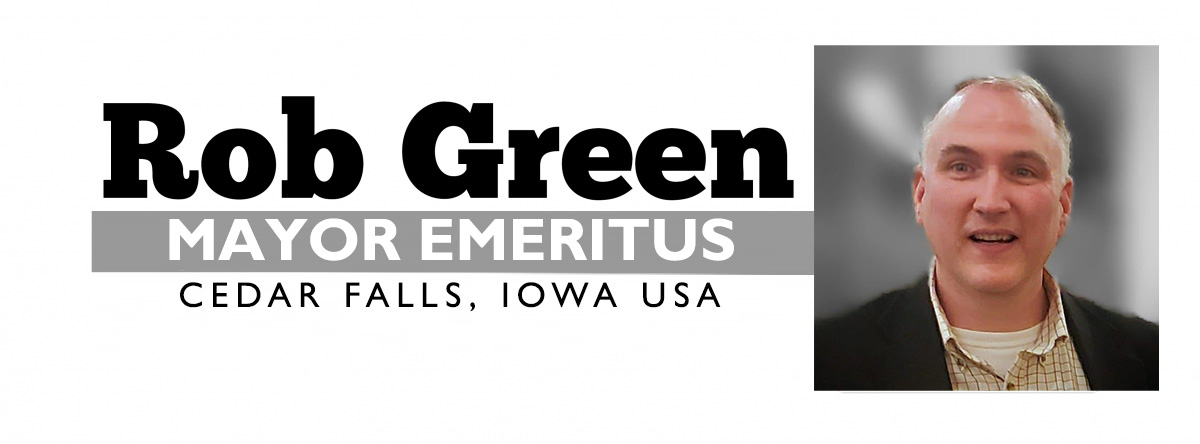
Introduction
In March 2019, I published my mayor candidate platform, which included consideration of 'full-time' vs. 'part-time' mayor. It's a debate that has gone on since the 1980s, and is all the more relevant now that the City has committed to a professional City Administrator for the day-to-day management of local government. No one approach is perfect, but I believe that advantages of striking the term "full-time" mayor from the City Code (and reducing the mayor's compensation commensurately) outweigh the drawbacks.
Where We're At...
Recently, the Council agreed to discuss the proposition, after a nearly four year break since its Jul 2017 Committee of the Whole discussion, which resulted in no change. During the November 2020 Council Goal Setting Work Sessions, the council agreed to hold a Work Session about this matter, at my request. The council specified that this decision should be made prior to the 2021 election season, so that potential mayoral candidates would know if the position would be full-time or part-time.
My Request of Cedar Falls Residents
As we go into this decision that's very important to the future of governance in Cedar Falls, I ask that you consider both the pros and the cons of the proposed ordinance before making up your mind on this. And if you have questions about the system works currently, feel free to reach out to me by phone, e-mail, facebook message, or text. I also recommend reading the Work Session Packet which contains the proposed ordinance changes ("redlined" to show differences) and also includes my 1000 hour annual notional time budget, which I prepared just for discussion and improvement of the mayor position. Here are some key takeaways:
Key Goals of a Transition Away from Full-Time Mayor
- Enable many more talented and successful residents to serve as Mayor, by not having to give up their existing career.
- Reduce the likelihood that one person will become, or seek to become, a 'career Mayor'.
- Put the Mayor on the same level as City Council Members as a community representative to government.
- Account for the Council's expressed desire that the daily running of city government should be handled by the City Administrator.
- Minimize the risk of the Mayor being fully co-opted by the bureaucracy, through maintenance of social & work ties outside of City Hall.
Key Goals of the Mayor & Administrator Ordinance Changes
- Strengthen and specify the Mayor's primacy as the municipal executive through direct supervision and evaluation of the appointed Administrator.
- Eliminate dysfunctional redundancies between the Council's declared expectations of the Mayor and Administrator.
- Minimize the need for the Mayor to possess extensive administrative knowledge & skills to effectively serve as Mayor, allowing for a greater diversity of candidates.
- Account for the Council's expressed desire that the daily running of city government should be handled by the City Administrator.
- Clarify and assert the Mayor's authority in setting the City Council agenda, designating the Mayor Pro Tem, and vetoing council actions.
A Two-Year Trial Period
In considering the change in the Mayor Role from full-time to part-time, I'm proposing a two-year test. By state law, this change can't go into effect until the next term, so that would mean January 1, 2022 to December 31, 2023. If approved, we would have all of 2021 to make whatever necessary arrangements there may be, then have the mayor in a part-time capacity for two years. If, after a year, it becomes apparent that the drawbacks outweigh the disadvantages, the Council can simply vote to increase the mayor's compensation and restore benefits for the next term beginning January 1, 2024 (and add 'full-time' back in, though that's not legally necessary or enforceable). So this change can be easily reversed if the Council deems it necessary.
Public Engagement Opportunities
- Currently: Constituents can contact their council representatives at citycouncil@cedarfalls.com with questions and comments based on the information provided in the Work Session Packet.
- Monday, December 21: The public will have the opportunity to observe (but not comment at) the 1.5-hour deliberative informal work session on Monday, December 21 (5pm via videoconference). Council members will consider and discuss, but not vote. If there's a consensus to move forward, the staff and I will incorporate any changes to the proposed ordinance that arise from this council discussion.
- Late December - Early January: Constituents can contact their council representatives with questions and comments at citycouncil@cedarfalls.com based on the information provided in the Work Session Packet.
- January - Februrary: If council consensus exists in #2 above, the public will have the opportunity to comment in up to three readings of the proposed ordinance changes, at the Regular Council Meetings (which occur the first and third Mondays at 7pm). The ordinance would take effect if the Council votes in favor of it at three separate meetings.
If you're a student of American History, you'll see a lot of fascinating parallels with the debates from the Constitutional Convention, particularly about the role of elected representatives and the general public in governance, and the balance of power between the executive and legislature....and especially the American system of representative democracy rather than technocracy. I look forward to a lively and civil community discussion about this topic and hope you'll join in.
Thank you for reading through to the end, and for doing the hard work to be an informed and engaged resident. Our great city -- and our representative democracy -- is better for it!
